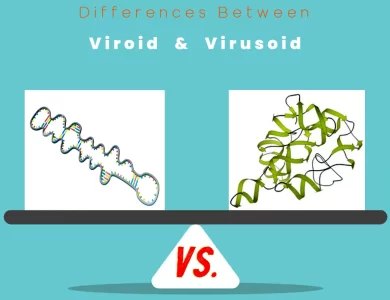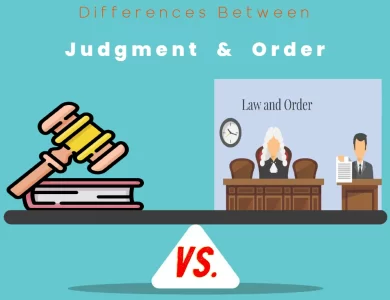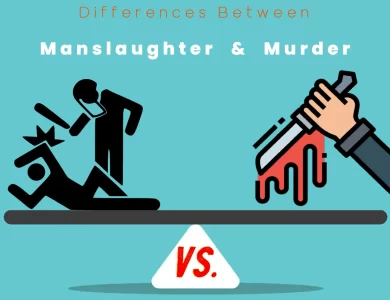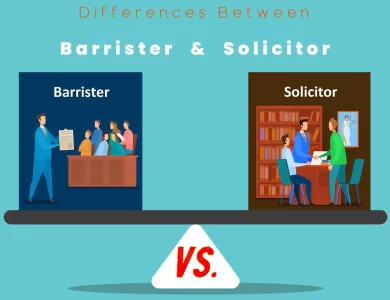-
Microbiology

Virusoid vs Viroid
Viroids and Virusoids, though they might sound like characters in a sci-fi thriller, are real entities that exist within the microcosmic realm of biology. They are both small, enigmatic RNA molecules, but their differences are as distinct as their names. Viroids are independent troublemakers, causing plant diseases with their circular RNA molecules. They come equipped with complex secondary structures, and their autonomy in replication means they don't need assistance from a larger viral partner. Viroids can infect a broad range of plant species, and their impact on agriculture is well-documented. On the other hand, Virusoids are the ultimate hitchhikers, relying on helper viruses for their existence. Their RNA structures are simpler than those of viroids, and they are not inherently pathogenic. Virusoids ride along with helper viruses, getting a free pass for replication and transmission. Their host range is intimately tied to the helper virus, limiting their scope. Understanding these distinctions is crucial for researchers, farmers, and anyone intrigued by the wonders of the microscopic world. The interactions between viroids, virusoids, and their host plants and viruses provide a fascinating glimpse into the intricate web of life's tiniest participants. Join us as we explore the intricate details that set viroids and virusoids apart in the microcosmic drama of biology.
-
Games

PS3 Slim vs Sony Playstation 3 (PS3)
When it comes to gaming consoles, Sony has long been a frontrunner with its PlayStation lineup. The Sony PlayStation 3 (PS3) and the PS3 Slim are two iconic iterations of this gaming behemoth, and understanding their disparities can be pivotal in making an informed choice. Design aesthetics are one of the immediate distinctions. The original PS3 boasts a glossy, multi-color design with larger dimensions, making it a prominent centerpiece. In contrast, the PS3 Slim presents a more modern and understated matte charcoal black finish, featuring a sleek and compact design that complements contemporary entertainment setups. Performance-wise, both consoles share the same CPU and GPU architecture, but the PS3 Slim takes the lead in energy efficiency and noise reduction. Its improved heat management ensures a quieter gaming experience, a significant advantage for those who prefer a serene gaming environment. Connectivity options remain similar, with USB ports, Wi-Fi, Bluetooth, and Ethernet ports for online gaming available on both consoles. However, if backward compatibility for PlayStation 2 games is a priority, it's essential to note that this feature was removed in later models of both consoles. If you're environmentally conscious or on a budget, the PS3 Slim shines with its lower power consumption, translating into cost savings and a reduced environmental footprint. It was introduced with competitive pricing, making it an attractive, budget-friendly option for gamers. In summary, the choice between the Sony PlayStation 3 (PS3) and the PS3 Slim hinges on your personal preferences, from design aesthetics to budget considerations. Whether you value the original PS3's glossy charm or the PS3 Slim's energy-efficient, quieter operation, both consoles offer a delightful gaming and multimedia experience.
-
Games

Sony PS3 vs Xbox 360
In the gaming world, two giants once clashed, vying for the title of ultimate gaming console: the Xbox 360 and the Sony PS3. These consoles, released in the mid-2000s, left an indelible mark on the gaming landscape and in the hearts of gamers worldwide. But what sets them apart? Let's dive into the semantic and entity-based differences to help you make an informed choice. Hardware Specifications: The Xbox 360 packed a 3.2 GHz PowerPC Tri-Core Xenon CPU and a 500 MHz ATI Xenos GPU. In contrast, the PS3 boasted a 3.2 GHz Cell Broadband Engine CPU and a 550 MHz RSX Reality Synthesizer GPU, along with more RAM. Exclusive Games: Xbox 360 introduced iconic franchises like "Halo" and "Gears of War," while the PS3 featured titles like "Uncharted" and "God of War." Online Services: Xbox Live and PlayStation Network offered distinct online experiences, with Xbox Live known for its multiplayer features and PSN for free online gaming. Media Capabilities: The Xbox 360 pioneered streaming with Netflix, while the PS3 had a built-in Blu-ray player, a big win for movie enthusiasts. Reliability: The Xbox 360 faced the notorious "Red Ring of Death" issue, while the PS3 was generally considered more reliable. Price Points: The Xbox 360 was budget-friendly, while the PS3, with its Blu-ray drive, had a higher initial price. Sales and Market Share: The Xbox 360 had an early lead but was closely matched by the PS3, with strong sales in Europe and Japan. These are just a glimpse of the distinctions. For a deeper dive into the world of Xbox 360 vs. Sony PS3, continue reading in our comprehensive blog post.
-
Games

PSP 3000 vs PSP 2000
Are you caught in the ultimate gaming dilemma, torn between the PSP 2000 and the PSP 3000? These iconic PlayStation Portable models have captivated gamers for years, but they each bring their unique strengths to the table. Let's delve into the showdown of the century, where we compare the PSP 2000 and the PSP 3000 across various aspects to help you make an informed decision. Design and Build The PSP 2000, often known as the Slim & Lite, introduced a sleeker and lighter design in 2007. On the other hand, the PSP 3000, which hit the shelves in 2008, continued the tradition of slimming down the PSP, maintaining the lightweight and slim form factor. Both models feature a matte finish and comfortable ergonomics for extended gaming sessions. Display and Screen Technology Here's where the competition gets interesting. The PSP 3000 outshines its predecessor with a superior display, offering brighter, more vibrant colors and a reduction in ghosting. The PSP 2000, while commendable, is more susceptible to ghosting, which can affect the visual quality. Battery Life The battle here results in a draw. Both the PSP 2000 and PSP 3000 offer similar battery life, providing approximately 4 to 6 hours of gameplay on a single charge, depending on factors like screen brightness and game intensity. Audio Quality No need to fret over this one; both models provide identical audio quality with stereo speakers and a 3.5mm headphone jack. You can enjoy immersive gaming audio on either device. Custom Firmware and Hacking The PSP 2000 takes a lead here. It's considered more hackable and user-friendly for custom firmware and homebrew gaming compared to the PSP 3000. If you're into customization and homebrew gaming, the PSP 2000 is the model for you. Price and Availability Initially, both models had a similar retail price,…
-
Games

PS3 vs Sony PS2
In the world of gaming, the Sony PlayStation series has left an indelible mark, with the PlayStation 2 (PS2) and PlayStation 3 (PS3) standing out as iconic consoles in their respective eras. If you're a gaming enthusiast or collector, you might find yourself at a crossroads, pondering the choice between these two remarkable systems. This comprehensive comparison aims to assist you in making an informed decision. The differences between the PS2 and PS3 extend beyond mere generational shifts. The PS2, a beloved relic of the early 2000s, ushered in a new era of gaming with its extensive game library and became a household name as a versatile DVD player. In contrast, the PS3, introduced in the mid-2000s, elevated gaming to high-definition heights, boasting Blu-ray capabilities and a broad range of multimedia features, making it an all-in-one entertainment hub. This comparison will delve into various aspects, including hardware specifications, game libraries, online capabilities, multimedia features, and more, helping you understand the unique strengths and offerings of each console. Whether you seek a nostalgic gaming experience, a multimedia powerhouse, or simply desire to explore the gaming evolution, this guide will assist you in choosing between the Sony PS2 and PS3.
-
Legal

Order vs Judgment
When delving into the complexities of the legal landscape, it's crucial to grasp the nuances that set the stage for how cases unfold. "Judgment" and "Order" are two pivotal concepts that often perplex those navigating the legal terrain. In a nutshell, a "Judgment" represents the final word in a legal case, akin to a judge's gavel sealing the fate of the parties involved. It's the definitive, legally binding decision that defines rights, obligations, and outcomes. On the flip side, an "Order" is more like the conductor's baton in the legal symphony. It sets the tempo, guiding the procedural aspects of a case. These directives are often temporary, adapting to the evolving needs of the proceedings. While both carry weight in the legal arena, their roles and implications differ significantly. To delve deeper, understanding what happens post-judgment or post-order is essential. Judgments can lead to appeals, enforcement actions, and long-term credit impacts. In contrast, compliance, modification, and the consequences of non-compliance are key concerns post-order. Navigating this legal dichotomy requires a firm grasp of these distinctions, ensuring that justice is served within the bounds of the law.
-
Legal

Law vs Act
Delving into the world of legislation can often feel like deciphering a cryptic code. But fear not! In our exploration of the "Differences Between Act vs Law," we aim to provide you with a clear and concise roadmap to navigate this intricate legal terrain. Acts and laws, while often used interchangeably, have unique roles and implications. An Act, or Act of Parliament, is a formal written law crafted by legislative bodies, such as parliaments or congresses. It serves as the bedrock of a legal system, laying down fundamental rules and principles. On the other hand, the term Law encompasses a broader category of legal rules, including acts, but also extending to secondary laws like regulations. Understanding the legislative process for these legal entities is key. Acts undergo a meticulous journey, involving drafting, debates, and approvals, whereas laws, especially regulations, can spring from administrative agencies in a more streamlined manner. Acts hold a paramount position in legal systems, taking precedence over other laws, while laws derive their authority from acts. But there's much more to discover! The impacts on daily life, accessibility, penalties for violations, and the influence of these legal instruments are distinct. Violating an Act might result in criminal penalties, whereas violations of laws, especially regulations, often lead to administrative or civil consequences. To unravel the full tapestry of differences between Acts and Laws, read on and empower yourself with essential knowledge for navigating the complex realm of governance and legislation.
-
Legal

Agreement vs Contract
Contracts and agreements are fundamental in the legal and business worlds, but understanding the differences between them is crucial. Let's explore these distinctions to shed light on how they function and when to use each. Contracts are legally binding agreements with specific elements that make them enforceable in a court of law. These elements include an offer, acceptance, consideration (the exchange of something valuable), legal intent, legal capacity, and a legal purpose. Contracts can be oral or written, but written contracts are preferred for clarity and enforceability. Agreements, on the other hand, serve as a broader category encompassing all types of understandings, whether or not they are legally binding. While verbal agreements and informal email exchanges fall into this category, not all agreements are contracts. Agreements often rely on mutual understanding, and their legal enforceability can vary. Understanding which to use is crucial. Contracts are ideal for situations where parties want their commitments legally enforced, such as in business deals, employment relationships, or property transactions. Agreements, in contrast, are suitable for more informal arrangements among friends or for situations where parties want to express their intentions without the same level of legal rigor. In essence, all contracts are agreements, but not all agreements are contracts, making the distinction between the two essential for making informed choices in various legal contexts.
-
Legal

Murder vs Manslaughter
Manslaughter vs. Murder: a distinction at the heart of criminal law. Understanding these terms is paramount, not just for legal professionals but for anyone seeking insight into the intricacies of the justice system. At its core, manslaughter involves the unlawful taking of a life without premeditation. It often stems from negligence, recklessness, or, in the case of voluntary manslaughter, heat-of-passion incidents. In contrast, murder encompasses intentional acts with malice aforethought, designed to cause death or serious harm. This division results in varying degrees, with first-degree murder representing calculated, premeditated acts and second-degree murder signifying impulsive, intentional killings. The repercussions of this legal divergence are substantial. Manslaughter cases tend to result in shorter prison sentences, while murder convictions may lead to life imprisonment or, in some regions, the death penalty. The available defenses also differ, with manslaughter occasionally involving self-defense or accident claims, and murder often seeing defenses like insanity or diminished capacity. Intriguingly, high-profile cases such as the O.J. Simpson trial have illustrated how these distinctions can shape legal outcomes and sentencing. To navigate the nuances of criminal law effectively, it's essential to grasp the contrasts between manslaughter and murder, ultimately contributing to a more informed and just society.
-
Legal

Solicitor vs Barrister
In the legal profession, the distinctions between barristers and solicitors are paramount. While they both play essential roles, they have unique responsibilities, educational paths, and specializations. Barristers are courtroom advocates, focusing on presenting cases before judges and juries. They typically undergo specialized training after completing an undergraduate law degree. Solicitors, on the other hand, provide comprehensive legal services, interact directly with clients, and handle various legal matters outside the courtroom. They often have direct and ongoing client interactions, offering advice, updates, and support throughout the legal process. These two legal professionals also differ in cost considerations. Barristers, due to their specialized expertise in courtroom representation, often charge higher fees. In contrast, solicitors offer various fee structures, including fixed fees and contingency arrangements, making them cost-effective for many legal matters. While barristers emphasize oral arguments and cross-examinations in court, solicitors excel in legal research, case preparation, and negotiation, focusing on written communication and negotiation skills. Understanding these key distinctions is crucial for anyone seeking legal assistance, enabling them to make informed decisions when navigating the legal landscape.










